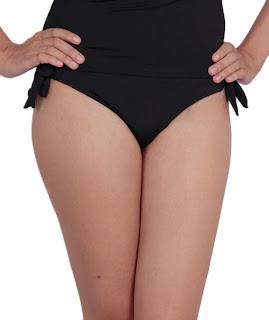Swiss Franc Weakens This Week, Reverses Downtrend by Weekend
[postlink]http://ncmp3.blogspot.com/2011/08/swiss-franc-weakens-this-week-reverses.html[/postlink]
The Swiss franc was down for the second week as prospects of peg of the currency to the euro significantly reduced appeal of the franc a safe asset.
At the beginning of the week the franc continued its run to the downside that it has started in the previous week. For some time it looked like we would see another week of significant losses of the Swiss currency. The Swissie reversed its trend after the Swiss National Bank announced on August 17 yet another intervention, but hasn’t mention anything about linking the franc to the euro. The franc fell against some currencies on the next day against some currencies, yet on Friday it rose again, reducing weekly losses by a great degree.
The future of the Swiss currency depends on how much faith Forex traders put in talks about euro-peg. Prospect of continual pressure on the franc would likely reduce attractiveness of the currency. Without such pressure the Swissie will continue its appreciation as the current situation in the world creates great demand for safer assets.
USD/CHF closed almost unchanged at 0.7848 from the opening level of 0.7829 after jumping as high as 0.8016. EUR/CHF jumped from 1.1172 to 1.1555, but erased most of its gains and closed at 1.1299. CHF/JPY fell from 98.03 to the weekly low of 95.62 before rebounding to close at 97.43.
The Swiss franc was down for the second week as prospects of peg of the currency to the euro significantly reduced appeal of the franc a safe asset.
At the beginning of the week the franc continued its run to the downside that it has started in the previous week. For some time it looked like we would see another week of significant losses of the Swiss currency. The Swissie reversed its trend after the Swiss National Bank announced on August 17 yet another intervention, but hasn’t mention anything about linking the franc to the euro. The franc fell against some currencies on the next day against some currencies, yet on Friday it rose again, reducing weekly losses by a great degree.
The future of the Swiss currency depends on how much faith Forex traders put in talks about euro-peg. Prospect of continual pressure on the franc would likely reduce attractiveness of the currency. Without such pressure the Swissie will continue its appreciation as the current situation in the world creates great demand for safer assets.
USD/CHF closed almost unchanged at 0.7848 from the opening level of 0.7829 after jumping as high as 0.8016. EUR/CHF jumped from 1.1172 to 1.1555, but erased most of its gains and closed at 1.1299. CHF/JPY fell from 98.03 to the weekly low of 95.62 before rebounding to close at 97.43.
CNN: Perry enters race in virtual tie with Romney, Bachmann fades
[postlink]http://ncmp3.blogspot.com/2011/08/cnn-perry-enters-race-in-virtual-tie.html[/postlink]posted at 10:05 am on August 11, 2011 by Ed Morrissey
printer-friendly
Texas Governor Rick Perry will upend the Republican presidential primary with his entry this weekend, CNN’s latest national poll shows. He starts off in a virtual tie with Mitt Romney, 17/15, with his nearest competitors at 12%. Perhaps most surprisingly, Michele Bachmann isn’t among them — and her support gets cut almost in half with Perry’s candidacy:
According to a CNN/ORC International poll, 15 percent of Republicans and independents who lean towards the GOP pick Perry as their first choice for their party’s nomination, just two points behind former Massachusetts Gov. Mitt Romney, who’s making his second bid for the White House. Romney’s two point margin over Perry is within the survey’s sampling error.
The poll’s Thursday release comes two days before Perry gives a speech at a major conservative gathering in South Carolina where his staff has indicated he will make his intentions for a presidential run clear. Later in the day Perry travels to New Hampshire to meet with GOP lawmakers, activists, and voters. Perry’s travels Saturday come as the rest of the political spotlight will be shining on Iowa, for a crucial presidential straw poll in Ames. Perry heads to Iowa Sunday to speak at a Republican party gathering, which means he will visit three of the crucial early voting primary and caucus states this weekend.
The survey indicates that former New York City Mayor Rudy Giuliani, former Alaska Gov. Sarah Palin, and Rep. Ron Paul of Texas, who is making his third bid for the White House, are at 12 percent apiece. While both Giuliani, who ran for the presidency four years ago, and Palin, the Republican vice presidential nominee in 2008, have flirted with bids, neither has taken concrete steps towards launching a campaign.
Three weeks ago, Perry scored 14% but Giuliani, Palin, and Bachmann all scored 13% or 12%. Now Bachmann has dropped to 7%, a fall of five points and the biggest decline in the field for the period. Ron Paul has picked up four points to surpass her and join Giuliani and Palin in a three-way tie for third place.
Bachmann isn’t the only candidate trending downward, but the rest are in the second tier. Herman Cain dropped two points to 4%, while Tim Pawlenty dropped one to come in at 2%. Both of these candidates need breakout performances in Iowa, which was well known before this week. If CNN’s series is not an outlier, Bachmann may need one as well, now that Perry has come closer to tossing his hat in the ring. She has been wowing crowds in Iowa this week in advance of the debate and straw poll, so she is doing all she can on the ground, but that may not be enough — at least not this week.
Time Magazine’s Mark Halperin interviewed Perry this week about his plans:
A highlight from the transcript:
Q: You’ve talked about how all of the social issues are important and this election is going to be about what the voters care most about: economy and jobs. Is it your hope, if you become a candidate, that even voters who disagree with you on social issues will find your record and argument on jobs so compelling that they vote for you even though they did disagree with you?
A: Well, I’m pretty sure there has never been a candidate [where] all the people agree with his or her positions on the issues. And there are single-issue voters, and I understand that. I respect that. I’ve run three times in Texas and I would suggest to you, Texas is somewhat of a microcosm of the rest of the country, particularly in this first decade of the 21st century. We are very, very cosmopolitan, if you will, very urban, but we have our rural areas. We have an incredible diversity of people [who] live in this state. This is not the Texas of my father. It is a very diverse state. Running for the governorship of the state of Texas, I recognized all the diversity of thought.
So, what’s the most important thing that’s facing this country? It’s getting this economy back. I am a pro-business governor. I will be a pro-business President if this does, in fact, ensue and I’m blessed to be elected President of the United States—unabashedly [so] because the fact of the matter is, there’s nothing more important than having an environment created by government that allows for the private sector to risk its capital to know that they have a good chance of having a return on the investment. Because at that particular point in time, the men and women who are out of work today can be back employed. They can take care of their family. They can do the things they desire in their lives. And without that strong economy, America can’t be strong militarily. We can’t have, frankly a presence in the world that we need to have. It all goes back to having an economy that people are comfortable with—they can risk their capital and they’ll have a return on the investment. We don’t have that today.
Q: There are people who’ve looked up—even though you’re not yet a candidate—your record and your endorsement of Mayor Giuliani in the last campaign, some of the positions you’ve taken on immigration, etcetera, and they say Rick Perry is not actually as conservative as he says. What do you say to those people?
A: Well, you know, I stand on my record. I thought Mayor Giuliani did a wonderful job of managing a city. He was very strong militarily. He was as strong on crime as any big city Mayor has ever been. He and I were 180 degrees on social issues, but he would put strict constructionists on the Supreme Court, which dealt with those social issues. I happen to be comfortable that I was making the right decisions and that as President, when it comes to those social issues, it’s very important to have that strict constructionist view of who you put on the Supreme Court. Because they’d look at the constitution and say, you know what, that issue dealing with abortion is not in the constitution. We will put it back to the states. Now if the states want to pass an amendment and three quarters of the states want to pass an amendment to make this be a change of our United States constitution, then just follow that process. And I’m a big believer that that’s how our country should work.
Q: So if you got in, would you be the most conservative candidate in the race? Or as conservative as everybody else?
A: Yeah I don’t think there’s any doubt about that. But again, we go back to what’s the most important issue here? I mean if somebody wants to go back and find, oh here’s a little spot right here—you know, I was a democrat at one time in my life. I was 25 years old before I think I ever met a person who would admit being a Republican. So the key is, I’ve got a record. And that record, particularly when it comes to the most important issues in this campaign, which is creating the climate of America that gives incentives to job creators to risk their capital and create jobs for our citizens, I will put that up against anybody who’s running and particularly against this President we have today, whose jobs record is abysma
printer-friendly
Texas Governor Rick Perry will upend the Republican presidential primary with his entry this weekend, CNN’s latest national poll shows. He starts off in a virtual tie with Mitt Romney, 17/15, with his nearest competitors at 12%. Perhaps most surprisingly, Michele Bachmann isn’t among them — and her support gets cut almost in half with Perry’s candidacy:
According to a CNN/ORC International poll, 15 percent of Republicans and independents who lean towards the GOP pick Perry as their first choice for their party’s nomination, just two points behind former Massachusetts Gov. Mitt Romney, who’s making his second bid for the White House. Romney’s two point margin over Perry is within the survey’s sampling error.
The poll’s Thursday release comes two days before Perry gives a speech at a major conservative gathering in South Carolina where his staff has indicated he will make his intentions for a presidential run clear. Later in the day Perry travels to New Hampshire to meet with GOP lawmakers, activists, and voters. Perry’s travels Saturday come as the rest of the political spotlight will be shining on Iowa, for a crucial presidential straw poll in Ames. Perry heads to Iowa Sunday to speak at a Republican party gathering, which means he will visit three of the crucial early voting primary and caucus states this weekend.
The survey indicates that former New York City Mayor Rudy Giuliani, former Alaska Gov. Sarah Palin, and Rep. Ron Paul of Texas, who is making his third bid for the White House, are at 12 percent apiece. While both Giuliani, who ran for the presidency four years ago, and Palin, the Republican vice presidential nominee in 2008, have flirted with bids, neither has taken concrete steps towards launching a campaign.
Three weeks ago, Perry scored 14% but Giuliani, Palin, and Bachmann all scored 13% or 12%. Now Bachmann has dropped to 7%, a fall of five points and the biggest decline in the field for the period. Ron Paul has picked up four points to surpass her and join Giuliani and Palin in a three-way tie for third place.
Bachmann isn’t the only candidate trending downward, but the rest are in the second tier. Herman Cain dropped two points to 4%, while Tim Pawlenty dropped one to come in at 2%. Both of these candidates need breakout performances in Iowa, which was well known before this week. If CNN’s series is not an outlier, Bachmann may need one as well, now that Perry has come closer to tossing his hat in the ring. She has been wowing crowds in Iowa this week in advance of the debate and straw poll, so she is doing all she can on the ground, but that may not be enough — at least not this week.
Time Magazine’s Mark Halperin interviewed Perry this week about his plans:
A highlight from the transcript:
Q: You’ve talked about how all of the social issues are important and this election is going to be about what the voters care most about: economy and jobs. Is it your hope, if you become a candidate, that even voters who disagree with you on social issues will find your record and argument on jobs so compelling that they vote for you even though they did disagree with you?
A: Well, I’m pretty sure there has never been a candidate [where] all the people agree with his or her positions on the issues. And there are single-issue voters, and I understand that. I respect that. I’ve run three times in Texas and I would suggest to you, Texas is somewhat of a microcosm of the rest of the country, particularly in this first decade of the 21st century. We are very, very cosmopolitan, if you will, very urban, but we have our rural areas. We have an incredible diversity of people [who] live in this state. This is not the Texas of my father. It is a very diverse state. Running for the governorship of the state of Texas, I recognized all the diversity of thought.
So, what’s the most important thing that’s facing this country? It’s getting this economy back. I am a pro-business governor. I will be a pro-business President if this does, in fact, ensue and I’m blessed to be elected President of the United States—unabashedly [so] because the fact of the matter is, there’s nothing more important than having an environment created by government that allows for the private sector to risk its capital to know that they have a good chance of having a return on the investment. Because at that particular point in time, the men and women who are out of work today can be back employed. They can take care of their family. They can do the things they desire in their lives. And without that strong economy, America can’t be strong militarily. We can’t have, frankly a presence in the world that we need to have. It all goes back to having an economy that people are comfortable with—they can risk their capital and they’ll have a return on the investment. We don’t have that today.
Q: There are people who’ve looked up—even though you’re not yet a candidate—your record and your endorsement of Mayor Giuliani in the last campaign, some of the positions you’ve taken on immigration, etcetera, and they say Rick Perry is not actually as conservative as he says. What do you say to those people?
A: Well, you know, I stand on my record. I thought Mayor Giuliani did a wonderful job of managing a city. He was very strong militarily. He was as strong on crime as any big city Mayor has ever been. He and I were 180 degrees on social issues, but he would put strict constructionists on the Supreme Court, which dealt with those social issues. I happen to be comfortable that I was making the right decisions and that as President, when it comes to those social issues, it’s very important to have that strict constructionist view of who you put on the Supreme Court. Because they’d look at the constitution and say, you know what, that issue dealing with abortion is not in the constitution. We will put it back to the states. Now if the states want to pass an amendment and three quarters of the states want to pass an amendment to make this be a change of our United States constitution, then just follow that process. And I’m a big believer that that’s how our country should work.
Q: So if you got in, would you be the most conservative candidate in the race? Or as conservative as everybody else?
A: Yeah I don’t think there’s any doubt about that. But again, we go back to what’s the most important issue here? I mean if somebody wants to go back and find, oh here’s a little spot right here—you know, I was a democrat at one time in my life. I was 25 years old before I think I ever met a person who would admit being a Republican. So the key is, I’ve got a record. And that record, particularly when it comes to the most important issues in this campaign, which is creating the climate of America that gives incentives to job creators to risk their capital and create jobs for our citizens, I will put that up against anybody who’s running and particularly against this President we have today, whose jobs record is abysma
posted at 10:05 am on August 11, 2011 by Ed Morrissey
printer-friendly
Texas Governor Rick Perry will upend the Republican presidential primary with his entry this weekend, CNN’s latest national poll shows. He starts off in a virtual tie with Mitt Romney, 17/15, with his nearest competitors at 12%. Perhaps most surprisingly, Michele Bachmann isn’t among them — and her support gets cut almost in half with Perry’s candidacy:
According to a CNN/ORC International poll, 15 percent of Republicans and independents who lean towards the GOP pick Perry as their first choice for their party’s nomination, just two points behind former Massachusetts Gov. Mitt Romney, who’s making his second bid for the White House. Romney’s two point margin over Perry is within the survey’s sampling error.
The poll’s Thursday release comes two days before Perry gives a speech at a major conservative gathering in South Carolina where his staff has indicated he will make his intentions for a presidential run clear. Later in the day Perry travels to New Hampshire to meet with GOP lawmakers, activists, and voters. Perry’s travels Saturday come as the rest of the political spotlight will be shining on Iowa, for a crucial presidential straw poll in Ames. Perry heads to Iowa Sunday to speak at a Republican party gathering, which means he will visit three of the crucial early voting primary and caucus states this weekend.
The survey indicates that former New York City Mayor Rudy Giuliani, former Alaska Gov. Sarah Palin, and Rep. Ron Paul of Texas, who is making his third bid for the White House, are at 12 percent apiece. While both Giuliani, who ran for the presidency four years ago, and Palin, the Republican vice presidential nominee in 2008, have flirted with bids, neither has taken concrete steps towards launching a campaign.
Three weeks ago, Perry scored 14% but Giuliani, Palin, and Bachmann all scored 13% or 12%. Now Bachmann has dropped to 7%, a fall of five points and the biggest decline in the field for the period. Ron Paul has picked up four points to surpass her and join Giuliani and Palin in a three-way tie for third place.
Bachmann isn’t the only candidate trending downward, but the rest are in the second tier. Herman Cain dropped two points to 4%, while Tim Pawlenty dropped one to come in at 2%. Both of these candidates need breakout performances in Iowa, which was well known before this week. If CNN’s series is not an outlier, Bachmann may need one as well, now that Perry has come closer to tossing his hat in the ring. She has been wowing crowds in Iowa this week in advance of the debate and straw poll, so she is doing all she can on the ground, but that may not be enough — at least not this week.
Time Magazine’s Mark Halperin interviewed Perry this week about his plans:
A highlight from the transcript:
Q: You’ve talked about how all of the social issues are important and this election is going to be about what the voters care most about: economy and jobs. Is it your hope, if you become a candidate, that even voters who disagree with you on social issues will find your record and argument on jobs so compelling that they vote for you even though they did disagree with you?
A: Well, I’m pretty sure there has never been a candidate [where] all the people agree with his or her positions on the issues. And there are single-issue voters, and I understand that. I respect that. I’ve run three times in Texas and I would suggest to you, Texas is somewhat of a microcosm of the rest of the country, particularly in this first decade of the 21st century. We are very, very cosmopolitan, if you will, very urban, but we have our rural areas. We have an incredible diversity of people [who] live in this state. This is not the Texas of my father. It is a very diverse state. Running for the governorship of the state of Texas, I recognized all the diversity of thought.
So, what’s the most important thing that’s facing this country? It’s getting this economy back. I am a pro-business governor. I will be a pro-business President if this does, in fact, ensue and I’m blessed to be elected President of the United States—unabashedly [so] because the fact of the matter is, there’s nothing more important than having an environment created by government that allows for the private sector to risk its capital to know that they have a good chance of having a return on the investment. Because at that particular point in time, the men and women who are out of work today can be back employed. They can take care of their family. They can do the things they desire in their lives. And without that strong economy, America can’t be strong militarily. We can’t have, frankly a presence in the world that we need to have. It all goes back to having an economy that people are comfortable with—they can risk their capital and they’ll have a return on the investment. We don’t have that today.
Q: There are people who’ve looked up—even though you’re not yet a candidate—your record and your endorsement of Mayor Giuliani in the last campaign, some of the positions you’ve taken on immigration, etcetera, and they say Rick Perry is not actually as conservative as he says. What do you say to those people?
A: Well, you know, I stand on my record. I thought Mayor Giuliani did a wonderful job of managing a city. He was very strong militarily. He was as strong on crime as any big city Mayor has ever been. He and I were 180 degrees on social issues, but he would put strict constructionists on the Supreme Court, which dealt with those social issues. I happen to be comfortable that I was making the right decisions and that as President, when it comes to those social issues, it’s very important to have that strict constructionist view of who you put on the Supreme Court. Because they’d look at the constitution and say, you know what, that issue dealing with abortion is not in the constitution. We will put it back to the states. Now if the states want to pass an amendment and three quarters of the states want to pass an amendment to make this be a change of our United States constitution, then just follow that process. And I’m a big believer that that’s how our country should work.
Q: So if you got in, would you be the most conservative candidate in the race? Or as conservative as everybody else?
A: Yeah I don’t think there’s any doubt about that. But again, we go back to what’s the most important issue here? I mean if somebody wants to go back and find, oh here’s a little spot right here—you know, I was a democrat at one time in my life. I was 25 years old before I think I ever met a person who would admit being a Republican. So the key is, I’ve got a record. And that record, particularly when it comes to the most important issues in this campaign, which is creating the climate of America that gives incentives to job creators to risk their capital and create jobs for our citizens, I will put that up against anybody who’s running and particularly against this President we have today, whose jobs record is abysma
printer-friendly
Texas Governor Rick Perry will upend the Republican presidential primary with his entry this weekend, CNN’s latest national poll shows. He starts off in a virtual tie with Mitt Romney, 17/15, with his nearest competitors at 12%. Perhaps most surprisingly, Michele Bachmann isn’t among them — and her support gets cut almost in half with Perry’s candidacy:
According to a CNN/ORC International poll, 15 percent of Republicans and independents who lean towards the GOP pick Perry as their first choice for their party’s nomination, just two points behind former Massachusetts Gov. Mitt Romney, who’s making his second bid for the White House. Romney’s two point margin over Perry is within the survey’s sampling error.
The poll’s Thursday release comes two days before Perry gives a speech at a major conservative gathering in South Carolina where his staff has indicated he will make his intentions for a presidential run clear. Later in the day Perry travels to New Hampshire to meet with GOP lawmakers, activists, and voters. Perry’s travels Saturday come as the rest of the political spotlight will be shining on Iowa, for a crucial presidential straw poll in Ames. Perry heads to Iowa Sunday to speak at a Republican party gathering, which means he will visit three of the crucial early voting primary and caucus states this weekend.
The survey indicates that former New York City Mayor Rudy Giuliani, former Alaska Gov. Sarah Palin, and Rep. Ron Paul of Texas, who is making his third bid for the White House, are at 12 percent apiece. While both Giuliani, who ran for the presidency four years ago, and Palin, the Republican vice presidential nominee in 2008, have flirted with bids, neither has taken concrete steps towards launching a campaign.
Three weeks ago, Perry scored 14% but Giuliani, Palin, and Bachmann all scored 13% or 12%. Now Bachmann has dropped to 7%, a fall of five points and the biggest decline in the field for the period. Ron Paul has picked up four points to surpass her and join Giuliani and Palin in a three-way tie for third place.
Bachmann isn’t the only candidate trending downward, but the rest are in the second tier. Herman Cain dropped two points to 4%, while Tim Pawlenty dropped one to come in at 2%. Both of these candidates need breakout performances in Iowa, which was well known before this week. If CNN’s series is not an outlier, Bachmann may need one as well, now that Perry has come closer to tossing his hat in the ring. She has been wowing crowds in Iowa this week in advance of the debate and straw poll, so she is doing all she can on the ground, but that may not be enough — at least not this week.
Time Magazine’s Mark Halperin interviewed Perry this week about his plans:
A highlight from the transcript:
Q: You’ve talked about how all of the social issues are important and this election is going to be about what the voters care most about: economy and jobs. Is it your hope, if you become a candidate, that even voters who disagree with you on social issues will find your record and argument on jobs so compelling that they vote for you even though they did disagree with you?
A: Well, I’m pretty sure there has never been a candidate [where] all the people agree with his or her positions on the issues. And there are single-issue voters, and I understand that. I respect that. I’ve run three times in Texas and I would suggest to you, Texas is somewhat of a microcosm of the rest of the country, particularly in this first decade of the 21st century. We are very, very cosmopolitan, if you will, very urban, but we have our rural areas. We have an incredible diversity of people [who] live in this state. This is not the Texas of my father. It is a very diverse state. Running for the governorship of the state of Texas, I recognized all the diversity of thought.
So, what’s the most important thing that’s facing this country? It’s getting this economy back. I am a pro-business governor. I will be a pro-business President if this does, in fact, ensue and I’m blessed to be elected President of the United States—unabashedly [so] because the fact of the matter is, there’s nothing more important than having an environment created by government that allows for the private sector to risk its capital to know that they have a good chance of having a return on the investment. Because at that particular point in time, the men and women who are out of work today can be back employed. They can take care of their family. They can do the things they desire in their lives. And without that strong economy, America can’t be strong militarily. We can’t have, frankly a presence in the world that we need to have. It all goes back to having an economy that people are comfortable with—they can risk their capital and they’ll have a return on the investment. We don’t have that today.
Q: There are people who’ve looked up—even though you’re not yet a candidate—your record and your endorsement of Mayor Giuliani in the last campaign, some of the positions you’ve taken on immigration, etcetera, and they say Rick Perry is not actually as conservative as he says. What do you say to those people?
A: Well, you know, I stand on my record. I thought Mayor Giuliani did a wonderful job of managing a city. He was very strong militarily. He was as strong on crime as any big city Mayor has ever been. He and I were 180 degrees on social issues, but he would put strict constructionists on the Supreme Court, which dealt with those social issues. I happen to be comfortable that I was making the right decisions and that as President, when it comes to those social issues, it’s very important to have that strict constructionist view of who you put on the Supreme Court. Because they’d look at the constitution and say, you know what, that issue dealing with abortion is not in the constitution. We will put it back to the states. Now if the states want to pass an amendment and three quarters of the states want to pass an amendment to make this be a change of our United States constitution, then just follow that process. And I’m a big believer that that’s how our country should work.
Q: So if you got in, would you be the most conservative candidate in the race? Or as conservative as everybody else?
A: Yeah I don’t think there’s any doubt about that. But again, we go back to what’s the most important issue here? I mean if somebody wants to go back and find, oh here’s a little spot right here—you know, I was a democrat at one time in my life. I was 25 years old before I think I ever met a person who would admit being a Republican. So the key is, I’ve got a record. And that record, particularly when it comes to the most important issues in this campaign, which is creating the climate of America that gives incentives to job creators to risk their capital and create jobs for our citizens, I will put that up against anybody who’s running and particularly against this President we have today, whose jobs record is abysma
Obama prepares for career as landlord
[postlink]http://ncmp3.blogspot.com/2011/08/obama-prepares-for-career-as-landlord.html[/postlink]
posted at 1:25 pm on August 11, 2011 by Jazz Shaw
printer-friendly
It’s an idea so beautiful in its simplicity and so perfectly targeted to cure one of our biggest national headaches that many readers will be slapping their foreheads in one of those, “I could have had a V-8″ moments. The housing market is still in the tank and the government has been forced to foreclose on countless properties which now sit vacant, generating no tax revenue. The nation’s coffers are running dry and we have to tackle our debt problem. But nobody wants to raise taxes. What to do?
Why, you kill two birds with one stone, of course! We’ll let the government go into the property rental business!
The Obama administration may turn thousands of government-owned foreclosures into rental properties to help boost falling home prices.
The Federal Housing Finance Agency said Wednesday it is seeking input from investors on how to rent homes owned by government-controlled mortgage companies Fannie Mae and Freddie Mac and the Federal Housing Administration.
At the end of last month, the government owned roughly 248,000 foreclosed homes, officials said. About 70,000 of those are listed for sale. But officials expect the number of foreclosures to soar in the coming months.
What could possibly go wrong? Over at Pajamas Media, Bryan Preston suspects that even in such an obviously brilliant scheme, there might be a few wrinkles.
[N]ot to put too fine a point on things, renting your home from the government raises all kinds of liberty questions. If they don’t like your politics, can they find a way to evict you? Can they tell you what to do (more than the government already does) in the home you’re renting from Uncle Sam? With a president hitting 51% disapproval, an IRS that’s become notorious for political audits and federal law enforcement agencies known lately more for gunrunning than crime stopping, that’s not an idle question. Would the feds allow renters to own firearms in these government homes? The majority of renters between now and 2012 are likely to be people who don’t like their landlord, but the landlord has, shall we say, serious firepower superiority. There’s a great deal to ponder here.
It’s difficult to imagine what a mess this would wind up being in court, if only on the constitutional authority questions. Preston offers an alternate suggestion of scrapping Fannie and Freddie entirely and spinning off all of those properties at open, public auctions. Granted, that would have a sudden, if short term negative impact on the real estate market, but it could conceivably hasten the process of allowing it to find its natural bottom and begin rebuilding from there in an organic fashion.
But who knows? If we let Washington handle it as proposed, there would probably be all sorts of exemptions and set-asides built into the system and you might wind up renting a mansion for fifty bucks a month. And if the house is built well enough it will provide you with a place to hide when the zombie apocalypse begins.
Cash for Bunkers?
posted at 1:25 pm on August 11, 2011 by Jazz Shaw
printer-friendly
It’s an idea so beautiful in its simplicity and so perfectly targeted to cure one of our biggest national headaches that many readers will be slapping their foreheads in one of those, “I could have had a V-8″ moments. The housing market is still in the tank and the government has been forced to foreclose on countless properties which now sit vacant, generating no tax revenue. The nation’s coffers are running dry and we have to tackle our debt problem. But nobody wants to raise taxes. What to do?
Why, you kill two birds with one stone, of course! We’ll let the government go into the property rental business!
The Obama administration may turn thousands of government-owned foreclosures into rental properties to help boost falling home prices.
The Federal Housing Finance Agency said Wednesday it is seeking input from investors on how to rent homes owned by government-controlled mortgage companies Fannie Mae and Freddie Mac and the Federal Housing Administration.
At the end of last month, the government owned roughly 248,000 foreclosed homes, officials said. About 70,000 of those are listed for sale. But officials expect the number of foreclosures to soar in the coming months.
What could possibly go wrong? Over at Pajamas Media, Bryan Preston suspects that even in such an obviously brilliant scheme, there might be a few wrinkles.
[N]ot to put too fine a point on things, renting your home from the government raises all kinds of liberty questions. If they don’t like your politics, can they find a way to evict you? Can they tell you what to do (more than the government already does) in the home you’re renting from Uncle Sam? With a president hitting 51% disapproval, an IRS that’s become notorious for political audits and federal law enforcement agencies known lately more for gunrunning than crime stopping, that’s not an idle question. Would the feds allow renters to own firearms in these government homes? The majority of renters between now and 2012 are likely to be people who don’t like their landlord, but the landlord has, shall we say, serious firepower superiority. There’s a great deal to ponder here.
It’s difficult to imagine what a mess this would wind up being in court, if only on the constitutional authority questions. Preston offers an alternate suggestion of scrapping Fannie and Freddie entirely and spinning off all of those properties at open, public auctions. Granted, that would have a sudden, if short term negative impact on the real estate market, but it could conceivably hasten the process of allowing it to find its natural bottom and begin rebuilding from there in an organic fashion.
But who knows? If we let Washington handle it as proposed, there would probably be all sorts of exemptions and set-asides built into the system and you might wind up renting a mansion for fifty bucks a month. And if the house is built well enough it will provide you with a place to hide when the zombie apocalypse begins.
Cash for Bunkers?
posted at 1:25 pm on August 11, 2011 by Jazz Shaw
printer-friendly
It’s an idea so beautiful in its simplicity and so perfectly targeted to cure one of our biggest national headaches that many readers will be slapping their foreheads in one of those, “I could have had a V-8″ moments. The housing market is still in the tank and the government has been forced to foreclose on countless properties which now sit vacant, generating no tax revenue. The nation’s coffers are running dry and we have to tackle our debt problem. But nobody wants to raise taxes. What to do?
Why, you kill two birds with one stone, of course! We’ll let the government go into the property rental business!
The Obama administration may turn thousands of government-owned foreclosures into rental properties to help boost falling home prices.
The Federal Housing Finance Agency said Wednesday it is seeking input from investors on how to rent homes owned by government-controlled mortgage companies Fannie Mae and Freddie Mac and the Federal Housing Administration.
At the end of last month, the government owned roughly 248,000 foreclosed homes, officials said. About 70,000 of those are listed for sale. But officials expect the number of foreclosures to soar in the coming months.
What could possibly go wrong? Over at Pajamas Media, Bryan Preston suspects that even in such an obviously brilliant scheme, there might be a few wrinkles.
[N]ot to put too fine a point on things, renting your home from the government raises all kinds of liberty questions. If they don’t like your politics, can they find a way to evict you? Can they tell you what to do (more than the government already does) in the home you’re renting from Uncle Sam? With a president hitting 51% disapproval, an IRS that’s become notorious for political audits and federal law enforcement agencies known lately more for gunrunning than crime stopping, that’s not an idle question. Would the feds allow renters to own firearms in these government homes? The majority of renters between now and 2012 are likely to be people who don’t like their landlord, but the landlord has, shall we say, serious firepower superiority. There’s a great deal to ponder here.
It’s difficult to imagine what a mess this would wind up being in court, if only on the constitutional authority questions. Preston offers an alternate suggestion of scrapping Fannie and Freddie entirely and spinning off all of those properties at open, public auctions. Granted, that would have a sudden, if short term negative impact on the real estate market, but it could conceivably hasten the process of allowing it to find its natural bottom and begin rebuilding from there in an organic fashion.
But who knows? If we let Washington handle it as proposed, there would probably be all sorts of exemptions and set-asides built into the system and you might wind up renting a mansion for fifty bucks a month. And if the house is built well enough it will provide you with a place to hide when the zombie apocalypse begins.
Cash for Bunkers?
Subscribe to:
Comments (Atom)





















































